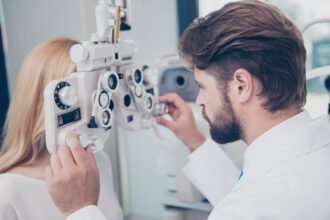Roughly one billion people live with some form of disability. Of that number, approximately 110 to 190 million individuals experience significant disabilities throughout their lives, enough to require daily care and supervision.
Sadly, neglect of special needs people is a bigger problem than most people think. Despite having the best intentions, many caregivers provide insufficient attention and fail to appreciate how those with significant disabilities are still human beings.
Our intent is not to make anyone feel guilty. Instead, the goal is to outline the most effective ways to ensure those with special needs have the best chance to lead happy and healthy lives. The following are seven tips for doing so:
Discourage substance abuse
Many people living with special needs turn to drugs and alcohol as coping mechanisms. Those responsible for the wellbeing of special needs individuals have a duty to discourage this habit as much as possible. That includes cigarettes and alcohol since both are highly addictive and very unhealthy. Since those with significant disabilities typically aren’t buying their own groceries, most instances of substance abuse among the disabled can be remedied by cutting off the supply. More times than not, it’s a friend or loved one who means well but doesn’t understand how addiction is even more difficult to treat when the person is intellectually or physically disabled.
Ensure access to quality education
The idea that people living with intellectual disabilities are unable to learn and apply that knowledge is an unfortunate misconception. While those living with mental impairment have a harder time with comprehension and retention, the right environment and instructors can make all the difference in the world. Many public and private schools make a point to provide special needs students with the resources needed to learn at their own pace. Meanwhile, most school districts require teachers to earn an education specialist credential through an accredited university. Added up, that means most people living with intellectual disabilities have access to the best education possible, so it’s imperative they’re given the opportunity as soon as possible.
Encourage regular exercise
Everyone benefits from regular exercise, including those with disabilities. While the nature of their specific conditions can limit their options, those with the ability to engage in physical activities ought to do so as often as the rest of us. The key is to prevent extended periods of inactivity since this can lead to a greater risk of muscular atrophy and other conditions which can prove life-threatening if left untreated.
Consider employment options
Another common misconception is that people living with significant mental or physical impairment have no role in the workforce. The truth is there are many job opportunities for those with special needs. Since employment is one of the best ways to get a sense of fulfillment and personal satisfaction, helping the disabled find jobs they’re good at is an integral part of helping them achieve happiness.
Stay on top of medical care
Those responsible for the wellbeing of someone living with special needs have a legal and ethical obligation to stay on top of medical care. However, since someone with limited ability to communicate has a harder time expressing when they’re unwell, caregivers must recognize the signs of distress and practice proactive measures to detect issues as soon as possible.
Address mental health concerns
People living with disabilities struggle with anxiety, depression, and other common mental health problems. Similar to signs of physical health concerns, caregivers need to be aware of the signs and symptoms of mental health concerns in those with special needs.
Foster strong relationships
Again, it should be no surprise to discover how people with special needs are just like the rest of us. Most of them want to have friends and meaningful relationships with others. That may sound unrealistic, but it’s very much possible, especially at a time when people can meet each other across virtual realms. Caregivers ought to encourage the development of these sorts of relationships as much as possible.
Everyone deserves a chance at living a happy and healthy life, including the millions of people living with special needs. They might need some help making it happen, but who doesn’t?










